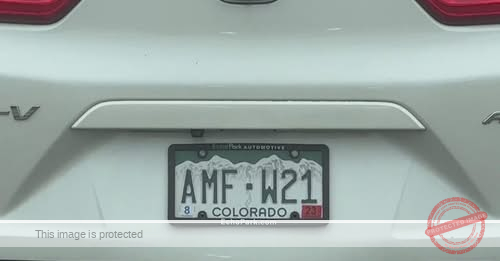
If some Colorado lawmakers get their way, a lot more drivers will be getting tickets instead of warnings for expired plates.
The number of drivers with expired license plates has skyrocketed over the last few years, and some state lawmakers are fed up and are cracking down. They’re changing a decades old law that limits how police write tickets.
Aurora City Attorney Pete Schulte, who is pushing for the change, said right now, officers who make a traffic stop can issue a municipal citation that’s handled in municipal court or a state citation, like an expired plate, that’s handled in county court, but not both.
“So, you have a city like Aurora that’s in three counties, officers would rather write tickets to the municipal court, but they couldn’t write the registration tickets there. So every time that I saw an officer pull somebody over for a speeding or for a municipal court violation, they were always given a verbal warning for the registration, and so I think a lot of people realized it just wasn’t getting enforced,” explained Schulte.
A bill sponsored by state Rep. Brianna Titone, who serves Colorado’s 27th district, allows local law enforcement to include the outdated registrations or plates in municipal summons. “Driving is not a right, it’s a privilege,” she asserted. “So, we want to make sure people have that privilege through paying their registration, having their insurance, and a valid license to be sure that they’re safely operating their vehicle and can protect the people around them when they’re driving around.”
Titone noted the money from car registration fees helps fund things like road improvements.
While opponents have said many people have allowed their plates to expire because they’re so expensive, Schulte said that’s not an excuse for ignoring the law. He said many people who can’t afford to pay for registration also can’t afford insurance.
The original bill included a carve-out for low-income drivers, but that was amended out. It does, however, allow judges to dismiss citations if a driver’s registration expired within the last four months and they renew it before their first court date.
The measure has bipartisan co-sponsors, passed the House, and is making its way through the Senate.
